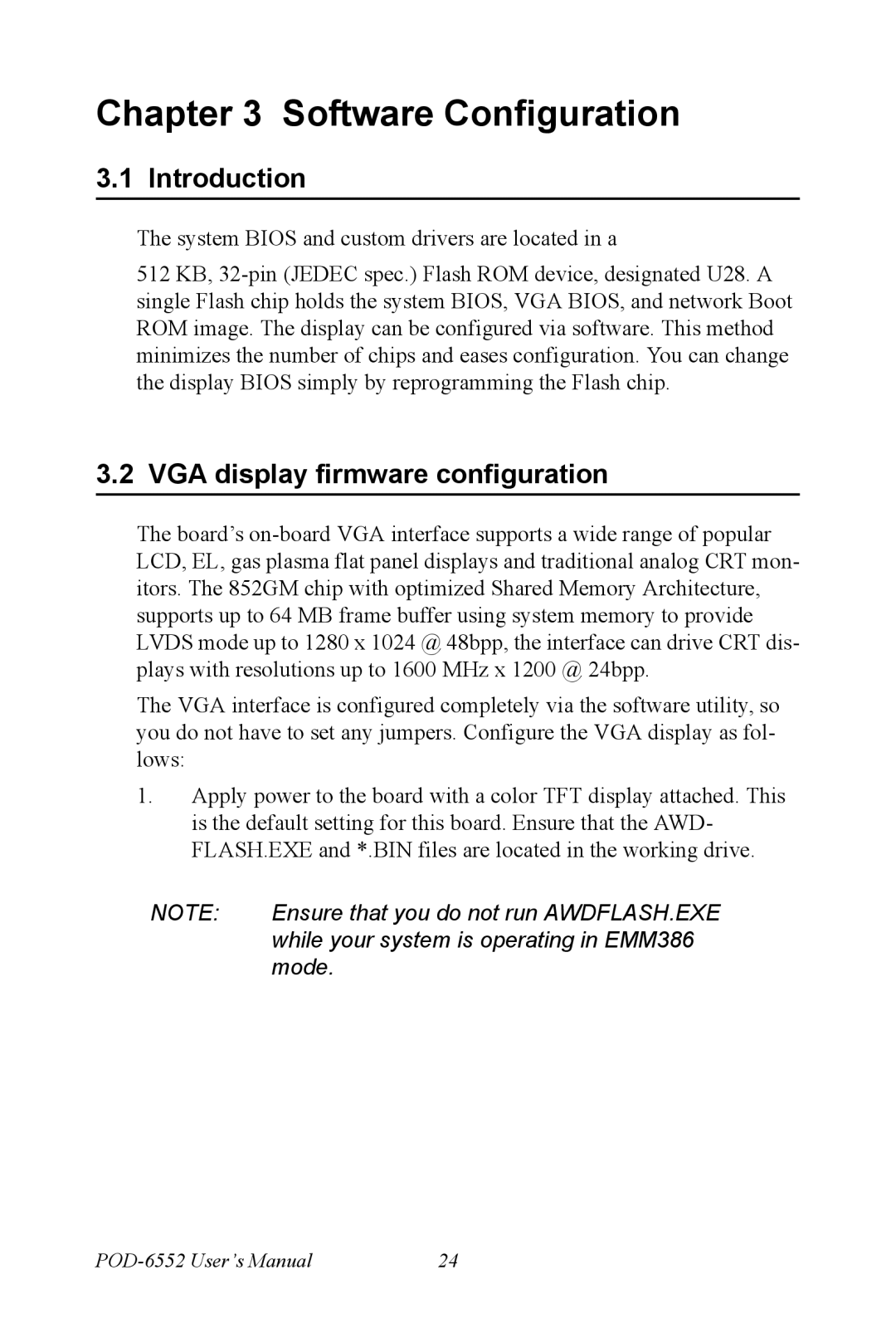POD-6552 specifications
The Intel POD-6552 is an advanced piece of technology developed by Intel designed to deliver high-performance computing capabilities. A significant advancement in Intel’s lineup, the POD-6552 integrates numerous features, making it attractive to both enterprise-level and individual users seeking superior processing power.One of the standout features of the Intel POD-6552 is its multi-core architecture. With a robust number of cores available, it can handle parallel processing and multi-threading tasks with remarkable efficiency. This enables users to run complex applications, such as 3D rendering, video editing, and scientific simulations, without compromising performance.
Another important aspect of the POD-6552 is the support for Intel’s advanced Hyper-Threading technology. This feature allows each core to handle two threads simultaneously, effectively doubling the number of tasks the processor can manage at the same time. As a result, applications that leverage multi-threading can achieve improved performance and responsiveness.
The POD-6552 also incorporates Intel's latest Turbo Boost technology. This allows the processor to dynamically increase its clock speed during high-demand scenarios to enhance performance when needed. This feature is particularly beneficial for tasks that require bursts of performance without constant high energy consumption, ultimately contributing to better efficiency.
In terms of connectivity, the Intel POD-6552 supports PCIe 4.0, providing users with faster data transfer rates and improved overall system responsiveness. The enhanced bandwidth of PCIe 4.0 is crucial for applications that require rapid communication between the CPU and other components, such as GPUs and storage devices.
Intel’s integrated graphics technology is another key characteristic of the POD-6552. It provides high-quality graphics performance without the need for a separate graphics card, making it suitable for both casual gamers and professionals working in graphic-intensive environments.
Security is also a top priority in the Intel POD-6552. With robust security features integrated directly into the hardware, including hardware-based encryption and advanced threat detection, users can be assured of enhanced protection against various cyber threats.
Overall, the Intel POD-6552 combines cutting-edge technologies and features that cater to a wide range of computing needs. Whether for gaming, content creation, or data analysis, the capabilities of this processor ensure a seamless and efficient user experience. Its balance of power, efficiency, and security marks it as a significant addition to Intel's family of processors, suitable for both personal and professional applications.

